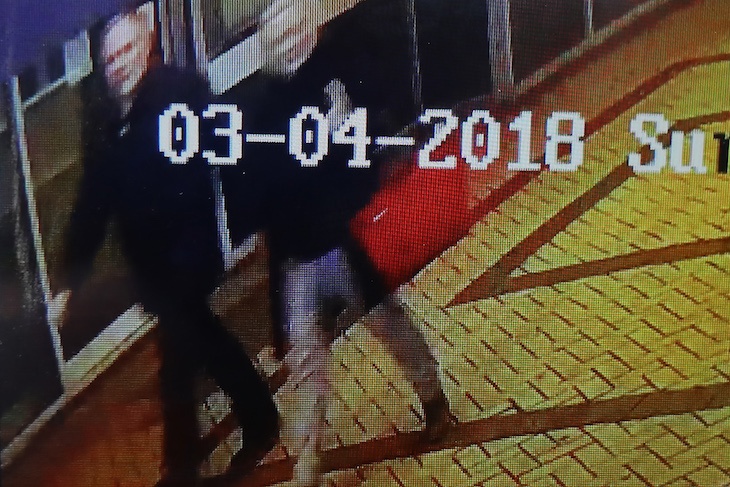The apparent chemical attack on a former Russian double-agent and his daughter in an English cathedral city could be straight from a cold war thriller. Unfortunately, though, the case is not going to be solved in 500 pages — nor will it be solved by July, when the Foreign Secretary has threatened to withdraw a British delegation of dignitaries, if not the English team, from the opening ceremony of the World Cup.
It was inevitable, as soon as Sergei Skripal was taken acutely ill on a bench in Salisbury, that fingers would point at Vladimir Putin. He did, after all, pass a law to give the FSB, the successor organisation to the KGB, powers to execute enemies of the Russian state on foreign soil. As Robert Service says on page 20, this form of assassination is entirely in keeping with his foreign policy.
And of course there is the case of the Russian dissident and former FSB officer Alexander Litvinenko, who died in 2006 after being poisoned with polonium at a London hotel. The nature of the poison — a substance which would be extremely difficult for ordinary criminals to obtain — was widely interpreted as a deliberate calling card of the Russian state.
Yet there are reasons for caution in the government’s reaction to the Skripal case. It took years for an official inquiry to investigate Litvinenko’s death, and even then the best it could say was that the Kremlin was ‘probably’ involved. This time, the circumstances are even less clear. There is no obvious motive. Litvinenko was an active dissident who was making trouble for Putin at the time of his death. Skripal, as far as we can tell, has lived a quiet life in Wiltshire since 2010, when he was one of the parties in a ‘spy swap’ between Britain and Russia. Four years earlier he had been convicted of spying for Britain and sentenced to 13 years in a Russian prison.
Why should Putin, or anyone else in the Russian state, suddenly want him dead now for anything he did more than a decade ago? Or destroy the precedent that spy swaps should always be honoured? If Russian agents considered Skripal a great danger, they had plenty of opportunities to murder him earlier — or simply to keep him in jail. It would hardly be in Russia’s interest to be seen to renege on a spy swap, which would make co-operation with Britain — or any other country — less likely in future.
What no one outside the security services can say at this stage is whether Skripal has been involved in any underground activity since coming to Britain — nor even whether he has been in contact with MI6 or involved with any private organisation. During the Cold War, Soviet spying was a nationalised monopoly. Along with much of Russian industry, it is now partly privatised. Mafias are also involved. Organised crime is now intertwined with the Kremlin: it is unclear where the state begins and ends. Investigators have not ruled out the possibility that this attack on Skripal was an attempt to frame Putin, to provoke the West into an intemperate response.
This is what makes life especially difficult for the British government. We don’t treat Italian ministers as complicit in the crimes of the Mafia, in spite of suspicions that they might well have had their fingers in organised crime. (The Slovakian government is embroiled in just such a controversy right now.) It is hard to argue, given that we preach human rights to the rest of the world, that the principle of innocent until proven guilty should not apply as much to Vladimir Putin as to anyone else. If we wrongly accuse him, we risk losing Russian co–operation where we really need it.
It is far better that the UK government limits its diplomatic broadsides against Russia to matters over which there is no room for doubt, such as Russia’s annexation of Crimea and the flexing of its muscles involving military exercises over the Baltic. The way to respond on these is to make sure that we retain our military capability at a level to deter Russia. We have sadly failed to do this. Britain and other European nations were too quick to cash in the dividend from the end of the Cold War, to dismantle the defences of western Europe without stopping to ask whether Russia had really changed. We expanded Nato eastwards to the Russian border but in a mainly symbolic, weaponless way which has invited Putin to test our boundaries.
The Skripal case must be exhaustively investigated, but we shouldn’t be surprised if the government can make no conclusive findings which would justify retaliation. There is little point in threats that would be laughed off. If Prince William is kept away from the World Cup, it would only serve to underline the paucity of the options open to Britain. If, on the other hand, we are serious about maintaining the strength of Nato we will succeed in deterring Vladimir Putin from trying to pursue expansionist ambitions.

























